Read Obama’s Speech at Nike: Full text
The White House posted the full text of President Barack Obama’s speech at Nike headquarters near Beaverton on Friday morning. The White House has also posted a video of the speech.
THE PRESIDENT: Hello, Oregon! (Applause.) Well, who arranged this day? (Applause.) Every time I come to Oregon this is what it looks like. (Laughter.) Yeah! It never rains in Oregon, does it?
AUDIENCE: No!
THE PRESIDENT: Never.
AUDIENCE MEMBER: Don’t come to California. (Laughter.)
THE PRESIDENT: All right. Well, listen, it is wonderful to see all of you. First of all, please give Mark another round of applause for his hospitality. (Applause.) And thanks to everyone at Nike for hosting us today, here in “Federer Platz.” (Laughter.) You know, the White House is cool. (Laughter.) We’ve got a basketball court — actually, it’s a tennis court that we repainted some lines — (laughter) — when I came into office. So it’s a combination basketball-tennis court. There is a putting green that President Eisenhower put in. Can you imagine, by the way, if I had put in a putting green? (Laughter.) Things have changed. (Laughter.)
But you’ve got all that and the 18th tee box from Pebble Beach. (Applause.) Come on. I’m sure some of my staff is running around right now in the Michael Jordan and Mia Hamm buildings — (laughter) — they want to be lab rats for your new gear. (Laughter.)
But it is wonderful to be here. Please give it up for two people who fight every single day for Oregon workers — your Representatives in Congress — they do a great job — Earl Blumenauer and Suzanne Bonamici. They are both here. Give them a big round of applause. (Applause.) Yay! And there are two people who couldn’t make it here today, but they’re doing a great job and you should give them a round of applause as well, and that’s Senator Ron Wyden and Representative Kurt Schrader. (Applause.)
So it is great to be at the world headquarters of such an iconic company — a company that helps athletes succeed from the individual to the world stage. And as you’ve heard, I’ve come to Oregon to talk a little bit about trade — which initially may have had some people thinking, what, is Mariota going someplace that we didn’t know about? (Laughter.) He’s going to be great. He’s an outstanding young man. He’s going to be terrific — and from Hawaii, by the way. (Applause.) Local boy.
But this is important, and I want to tell you why I think trade deals and our willingness to go out there and compete on the global stage is so important.
Before I came out here, I had a chance to meet with some small business owners from across Oregon, whose workers make everything from bikes to tea to stationery to wine. And they know how important this is to them. Sometimes when we talk about trade, we think of Nike, or we think of Boeing, or we think of G.E. — we think about these big multinational companies. But those small business leaders came here today because they understood that these markets outside the United States will help them grow, and will help them hire more folks — just as all the suppliers to Nike or Boeing or G.E. or any of these other companies understand this is going to be critical to their growth and their ability to create new jobs.
In fact, that’s why Ron Wyden is not here — because he’s in Washington, D.C. as we speak quarterbacking this effort on behalf of Oregon’s small business owners and workers.
Now, small businesses are the backbone of our economy. Eventually, like Nike, they grow sometimes into really, really big companies. They employ millions of people; 98 percent of exporters are small businesses. They’re the ones who make Made in Oregon and Made in the USA mean something. And they represent something essential about this country — the notion that if you’ve got a good idea and you’re willing to work at it, you can turn that idea into a business, you can growth that business, and eventually, who knows what might happen. You can give other people a chance to earn a living even as you do well. That’s America’s promise. And it’s up to us to keep that promise alive.
Now, that promise was threatened for almost everybody just about seven years ago, when the economy nearly collapsed, and millions of Americans lost their jobs and their homes and their life savings. But thanks to the hard work of the American people and entrepreneurs like the ones who are here today — and some pretty good policies from my administration — (laughter) — we’re in a different place today. (Applause.) We’re in a different place today.
This morning, we learned that our economy created 223,000 new jobs last month. (Applause.) The unemployment rate ticked down again to 5.4 percent — which is the lowest it’s been in almost seven years. (Applause.) That’s 3 million new jobs over the past 12 months — nearly the fastest pace in over a decade. And all told, over the past 62 months in a row, America’s businesses have created 12.3 million new jobs.
I should add, by the way, 62 months ago is when I signed the Affordable Care Act. So, obviously, it hasn’t done too bad in terms of employment in this country. (Applause.) I just thought I’d mention that. (Applause.) Since there were a lot of predictions of doom and gloom, I would just suggest those who were making those predictions go back and check the statistics. (Laughter.) Just saying. (Laughter.)
So small businesses deserve a lot of credit for that. In fact, over the past several years, small businesses have created nearly two out of every three new American jobs. And the question is, how do we build on that success? We’ve got to be relentless in our efforts to support small businesses who are creating jobs and helping to grow the economy.
And that’s been the purpose behind many of the policies I’ve fought for as President. I’ve cut taxes for small businesses more than a dozen times. I’ve pushed for investments in infrastructure and faster Internet. It’s why we’ve made health care more accessible, affordable, portable — to give people the freedom to change jobs or launch that startup without worrying about losing their health insurance.
And passing trade agreements is part of that agenda if those trade agreements are the right kinds of trade agreements; if they make sure that they’re growing our businesses, and helping American workers by selling goods Made in America across the rest of the world.
And I’ve been talking a lot about this lately, because I view smart trade agreements as a vital piece of middle-class economics. Not a contradiction to middle-class economics, it’s a part and parcel of it.
I believe that our country does best when everyone gets a fair shot, everyone does their fair share, everybody plays by the same set of rules. And that means making sure everybody has got a good education. It means making sure that women are getting paid the same as men for doing the same work. (Applause.) It means making sure that folks have to have sick leave and family leave and that they can balance work and family in a fair way. It means, working to increase the minimum wage all across this country — because folks who have some of the toughest jobs oftentimes get the lowest pay.
That’s all part of middle-class economics, but, you know what, so is trade. We strive to make sure our own economy lives up to high standards, but in a lot of parts of the world, the rules are unfair. The playing field is uneven. That puts American businesses and American workers at a disadvantage. So the question is, what should we do about it?
Some folks think we should just withdraw and not even try to engage in trade with these countries. I disagree. We have to make sure America writes the rules of the global economy. And we should do it today, while our economy is in the position of global strength. (Applause.) Because if we don’t write the rules for trade around the world — guess what — China will. And they’ll write those rules in a way that gives Chinese workers and Chinese businesses the upper hand, and locks American-made goods out.
That’s the choice we face. We’re not going to be able to isolate ourselves from world markets. We got to be in there and compete. And the question is, are we going to make sure that the rules are fair so that our businesses and our workers are on a level playing field. Because when they are, we win every time. When the rules are fair, we win every time. (Applause.)
So this is why I’m such a strong supporter of new trade agreements. They’re going to help our workers compete and our businesses compete. This is not a left issue or a right issue, or a business or a labor issue. It is about fairness and equity and access. And like other issues that we’ve waged slow, steady fights on over the last seven years, this is also a question of the past versus the future.
So the Trans-Pacific Partnership that we’re working on, it’s the biggest trade deal that we’re working on right now — has to do with the Asia Pacific region. And it reflects our values in ways that, frankly, some previous trade agreements did not. It’s the highest-standard, most progressive trade deal in history. It’s got strong, enforceable provisions for workers, preventing things like child labor. It’s got strong, enforceable provisions on the environment, helping us to do things that haven’t been done before, to prevent wildlife trafficking, or deforestation, or dealing with our oceans. And these are enforceable in the agreement.
And Nike operates in the Pacific region, so they understand the competitive pressures they’re under. Nike has factories all around the world. And let’s face it, Mark I think doesn’t mind me saying it that some of these countries, they don’t have the standards for wages and labor conditions that we have here.
So when you look at a country like Vietnam, under this agreement, Vietnam would actually, for the first time, have to raise its labor standards. It would have to set a minimum wage. It would have to pass safe workplace laws to protect its workers. It would even have to protect workers’ freedom to form unions — for the very first time. That would make a difference. That helps to level the playing field — (applause) — and it would be good for the workers in Vietnam, even as it helps make sure that they’re not undercutting competition here in the United States.
So that’s progress. It doesn’t mean that suddenly working conditions in Vietnam will be like they are here at Nike. (Laughter.) Or here in Portland right away. But it moves us in the right direction.
And if Vietnam, or any of the other countries in this trade agreement don’t meet these requirements, they’ll face meaningful consequences. If you’re a country that wants in to this agreement, you have to meet higher standards. If you don’t, you’re out. If you break the rules, there are actual repercussions. And that’s good for American businesses and American workers, because we already meet higher standards than most of the rest of the world, and that helps level the playing field.
And this deal would strengthen our hand overseas by giving us the tools to open other markets to our goods and services and make sure they play by the fair rules we help write. The truth is, we have one of the most open markets in the world. Folks are already selling stuff here. We got to be able to sell there. That requires us to enter into trade agreements to open up their markets.
I hear Oregon wine is actually pretty good. (Applause.) Somebody told me that the pinot noir in Oregon is top-notch, right? I’ve got some winemakers right here. (Applause.) Well, I want to make sure Japanese wine consumers have the opportunity to partake — (laughter) — in our excellent Oregon wine.
We got some Oregon beef producers and ranchers around here. (Applause.) Beef is really expensive in Japan. Let’s make sure they try some Oregon steaks. (Applause.) It’s good stuff.
And that’s one of the best things that can happen for our businesses and our workers — opening up markets that have previously been closed, particularly markets where they’re already selling stuff here. There’s a lack of reciprocity. It’s not a fair deal right now. We want to make it fair.
Now, I want to acknowledge — because this looks like a very well-read and informed crowd — (laughter) — that there have been a bunch of critics about trade deals generally and the Trans-Pacific Partnership. And what’s interesting is typically they’re my friends, coming from my party, and they’re my fellow travelers on minimum wage and on job training and on clean energy. On every progressive issue, they’re right there with me. And then on this one, they’re like whooping on me. (Laughter.)
But I tell you what. I’ve run my last election, and the only reason I do something is because I think it’s good for American workers and the American people and the American economy. (Applause.) I don’t have any other rationale for doing what I do than I think it’s the best thing for the American people. And on this issue, on trade, I actually think some of my dearest friends are wrong. They’re just wrong. And here’s why.
First of all, they say that this trade agreement will cost American jobs. And they’re really basing this on some past experience, looking at what happened in the ’90s, over the last 20 years, as there was a lot of outsourcing going on. And you know what, past trade agreements, it’s true, didn’t always reflect our values or didn’t always do enough to protect American workers. But that’s why we’re designing a different kind of trade deal
And the truth is that companies that only care about low wages, they’ve already moved. They don’t need new trade deals to move. They’ve already outsourced. They’ve already located in search of low wages.
What this trade agreement would do is open the doors to the higher-skill, higher-wage jobs of the future — jobs that we excel at. It would make sure our manufacturers who are operating at the higher end of the value chain are able to access these growing markets. And the fact is, over the past few years, our manufacturers have been steadily creating jobs for the first time since the 1990s — under my administration. After more than a decade away from the top spot, business leaders around the world have declared the United States is the world’s number one place to invest for a third year in a row. (Applause.) Third year in a row.
So the point is, outsourcing is already giving way to insourcing. Companies are starting to move back here to do more advanced manufacturing, and this is a trend we expect to continue. This trade deal would help that.
Just this morning, as Mark may have mentioned, Nike announced that, with the Trans-Pacific Partnership, it will make new investments in advanced manufacturing — not overseas, but right here in the United States. And far more Nike products would be made in the U.S.A. (Applause.) And that means thousands of new jobs in manufacturing and engineering and design at Nike facilities across the country, and potentially tens of thousands of new jobs along Nike’s supply chain here at home. That’s what trade can do. (Applause.)
Look, I’ve spent six and a half years trying to rescue this economy — six and a half years of trying to revitalize American manufacturing, including rescuing an American auto industry that was on its back and is now fully recovered. So I would not risk any of that if I thought the trade deals were going to undermine it. The reason I’m for this is because I think it will enhance it and advance it. So that’s point number one.
Point number two — when you ask folks specifically, what do you oppose about this trade deal, they just say “NAFTA.” NAFTA was passed 20 years ago. That was a different agreement. And in fact, this agreement fixes some of what was wrong with NAFTA by making labor and environmental provisions actually enforceable. (Applause.) I was just getting out of law school when NAFTA got passed. (Laughter.)
Number three — you’ve got some critics saying that any deal would be rushed through; it’s a secret deal, people don’t know what’s in it. This is not true. Any agreement that we finalize with the other 11 countries will have to be posted online for at least 60 days before I even sign it. Then it would go to Congress — and you know they’re not going to do anything fast. (Laughter.) So there will be months of review. Every T crossed, every I dotted. Everybody is going to be able to see exactly what’s in it.
There’s nothing fast-track about this. This is a very deliberate track — (laughter) — which will be fully subject to scrutiny. And I’m confident when people read the agreement for themselves, they’ll see that this is the most progressive trade deal in history.
Number four — critics warn that parts of this deal would undermine American regulation — food safety, worker safety, even financial regulations. They’re making this stuff up. (Applause.) This is just not true. No trade agreement is going to force us to change our laws. This agreement would make sure our companies aren’t discriminated against in other countries.
We already treat companies from other countries fairly here. But our companies don’t always get treated fairly there. So sometimes they need to have some way to settle disputes where it’s not subject to the whims of some government bureaucrat in that country. That’s important. We want our businesses to succeed in selling over there because that’s how our workers will get more jobs here in the United States.
And then finally, some critics talk about currency manipulation. Now, this has been a problem in the past. Some countries, they try to lower their currency so that it makes their goods cheaper, makes our more expensive. There was a time when China was pretty egregious about this. When I came into office, I started pounding on them. Every time I meet with them, I’d be talking about currency. And we pushed back hard, and China moved. In real terms, their currency has appreciated about 30 percent since I came into office. And we’re going to keep on going after it. But that’s not an argument against this trade agreement. If we give up the chance to help our businesses sell their stuff in the world’s fastest-growing markets, that doesn’t do anything to stop currency manipulation.
So the fact is, some folks are just opposed to trade deals out of principle, a reflexive principle. And what I tell them is, you know what, if you’re opposed to these smart, progressive trade deals, then that means you must be satisfied with the status quo. And the status quo hasn’t been working for our workers. It hasn’t been working for our businesses. And there are people here who will tell you why.
I’m going to just give you a couple of examples of small businesses who I had a chance to meet with today. Egg Press is a Portland-based greeting card company. (Applause.) Really nice. They sell their cards in Australia, which is a member of this Trans-Pacific Partnership agreement. Their CEO, Tess Darrow — where’s Tess? Raise your hand. I saw her. There she is. (Applause.) So Tess says that if they could more easily reach customers in Japan, as well, they’d sell half the volume that they do here in America. That’s a lot.
Right now, the logistics of exporting to Japan are too complicated. Products end up being held up for months at the border. This agreement would help solve some of those problems so Tess can sell more greeting cards in Japan — presumably in Japanese. (Laughter.) Is there going to be — there will be a translation process, I assume. Yes, absolutely. I’m teasing. (Laughter.)
So the trade deal would help eliminate barriers, and simplify customs, and hold countries accountable for getting products delivered swiftly. The more Tess sells, the more she can grow, the more she can hire here in Oregon, here in the United States.
Oregon Fruit Products — makes canned fruits, berries, other products — depends on exports for 20 percent of its annual sales. Right now, it exports to four members of this partnership that we’re putting together: Japan, Australia, Singapore, and Canada. Unfortunately, selling in these countries right now can mean dealing with unfair rules designed to prevent our products from being offered in their markets. Under this agreement, that would change. Exporting becomes simpler, more consistent. That means more people around the world eating Oregon berries all year long. Berry tasty. (Applause.)
Sokol Blosser Winery — (applause) — we got a lot of drinkers here. (Laughter.) It’s a winery, family-run in Dayton, Oregon. One of its top export markets is Japan. Right now, there are high tariffs on American wine in that country. Under this trade partnership, those tariffs would be eliminated, and wineries across America could see their sales grow overseas. The brother–and-sister team that runs this vineyard — wave, guys — (applause) — they say, “If we can make it easier to do business with countries that are already our trading partners, countries that are allies, that’s a good thing.”
They’re right. This deal would be a good thing. So let’s “just do it.” (Laughter and applause.) It took a while for you to catch that, didn’t it? (Laughter.) I thought that was pretty obvious. (Laughter.)
So, listen, I know a lot of folks who are skeptical about trade. Past trade deals didn’t always live up to the hype. Labor and environmental protections weren’t always strong enough. I saw for years, in Chicago and towns across Illinois, manufacturing collapsing, jobs drying up. Outsourcing is real. Folks didn’t just make that up. Some of our manufacturing base shifted over the last 25 years, and it wasn’t good for manufacturing and it wasn’t good for those communities, and it wasn’t good for workers. That’s the truth. It had benefits — other jobs were created, we got cheaper goods. But there was real displacement and real pain. And so, for many Americans, this is not an abstraction; this is real.
But we’ve got to learn the right lessons from that. The lesson is not that we pull up the drawbridge and build a moat around ourselves. The lesson is, is that we’ve got to make sure that the trade deals that we do shape are ones that allow us to compete fairly.
So when I took office, I decided we could rethink the way we do trade in a way that actually works for working Americans. I didn’t think this was the right thing to do just for companies. If I didn’t think this was the right thing to do for working families, I would not be fighting for it. If any agreement undercuts working families, I won’t sign it. I ran for office to expand opportunity for everybody — the all-American idea that no matter who you are, or where you come from, or how you started out, or who you love, in America you can make it if you try. (Applause.)
So, yes, we should be mindful of the past, but we can’t ignore the realities of the new economy. We can’t stand on the beaches and stop the global economy at our shores. We’ve got to harness it on our terms. This century is built for us. It’s about innovation. It’s about dynamism and flexibility and entrepreneurship, and information and knowledge and science and research. That’s us. So we can’t be afraid of it; we’ve got to seize it. We’ve got to give every single American who wakes up, sends their kids to school, rolls up their sleeves, punches in every day the chance to do what they do best: dream up, innovate, build, sell the best products and ideas in the world to every corner of the world. (Applause.)
Because, Nike, we do not just have the best athletes in the world. We also have the best workers in the world. (Applause.) We also have the best businesses in the world. And when the playing field is level, nobody beats the United States of America. (Applause.) Nobody beats the United States of America.
Just do it, everybody. Thank you. God bless you. Thank you, Oregon. Thank you. God bless America. (Applause.)

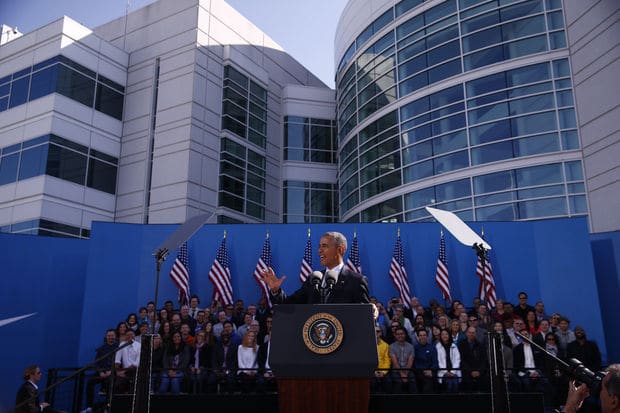
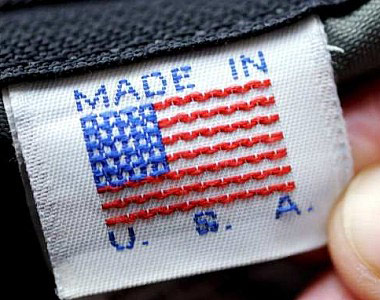
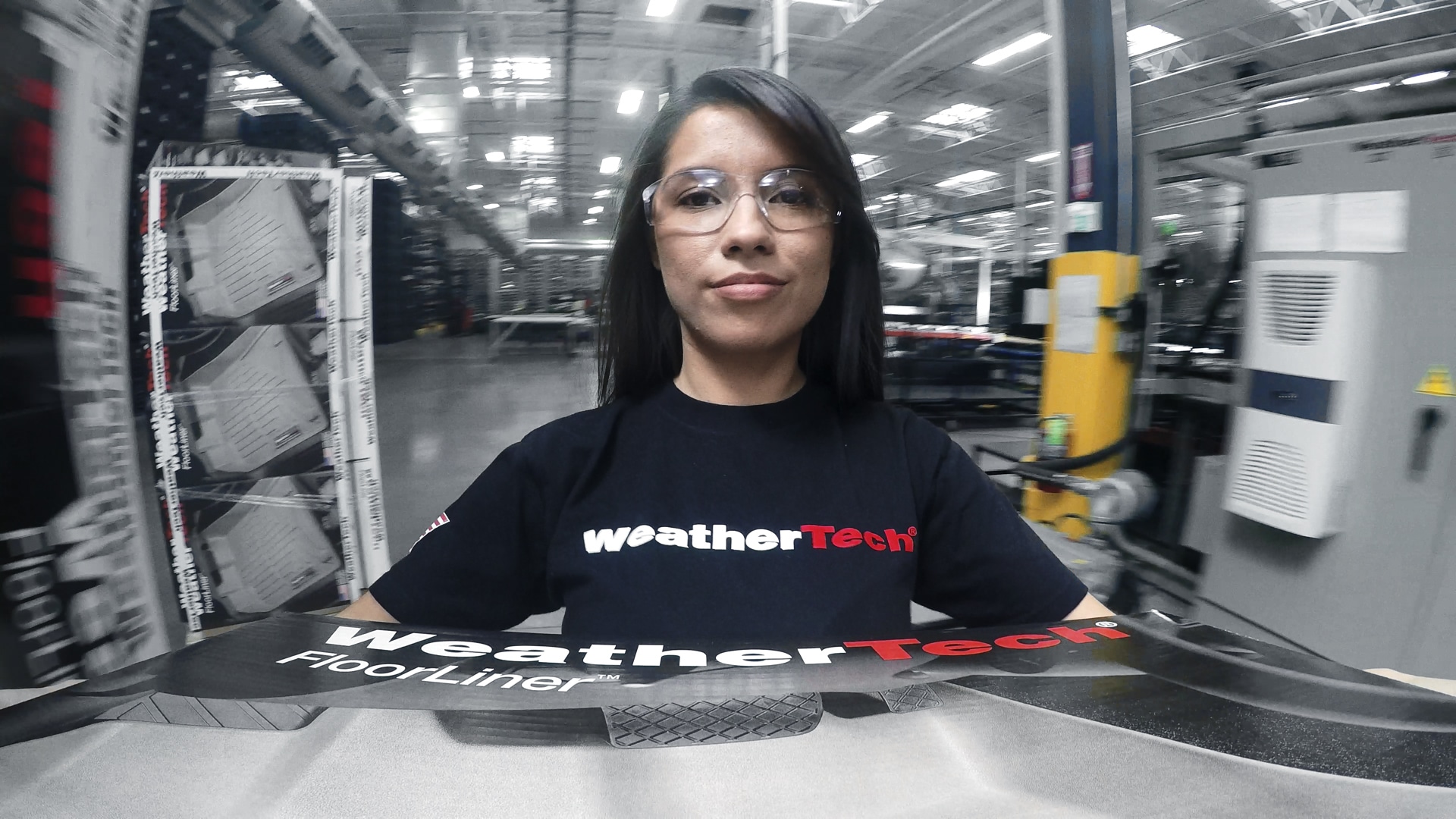
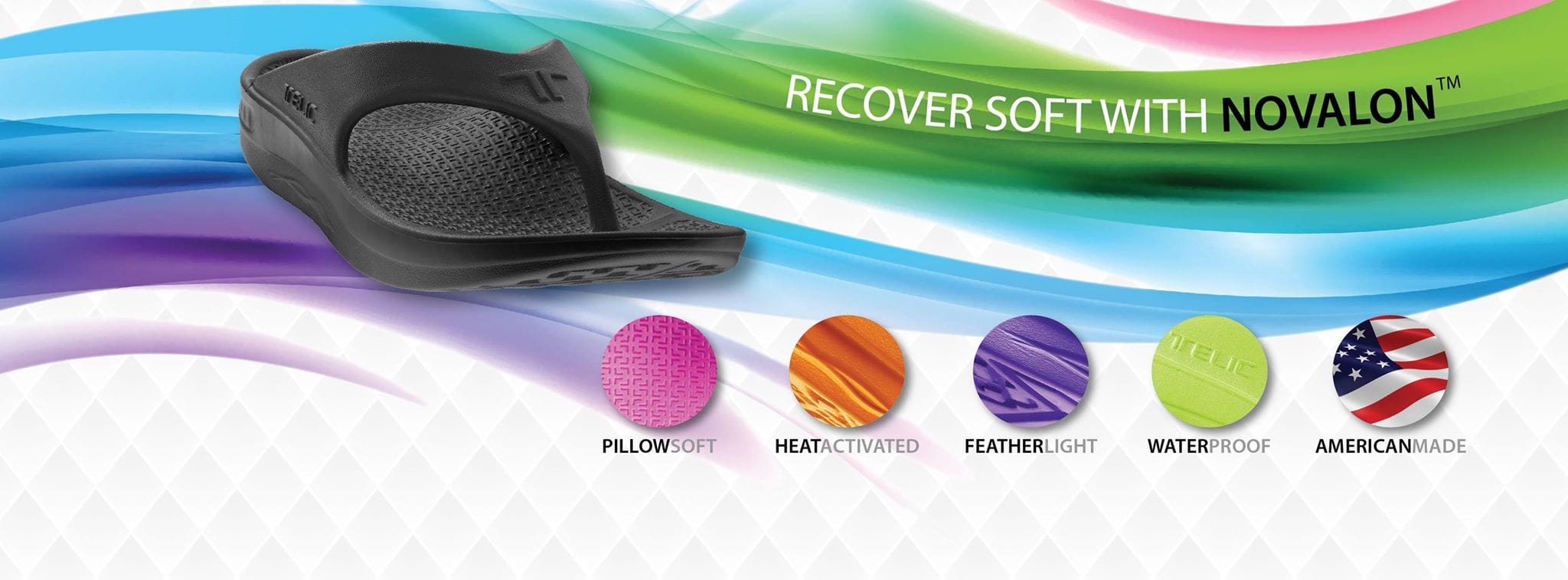
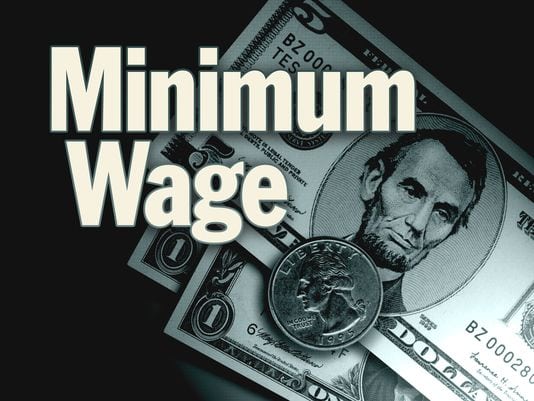
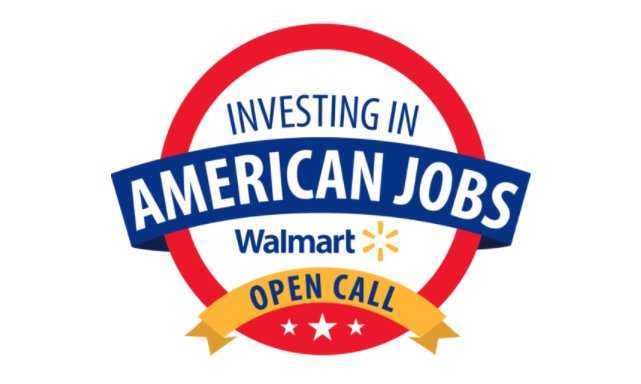
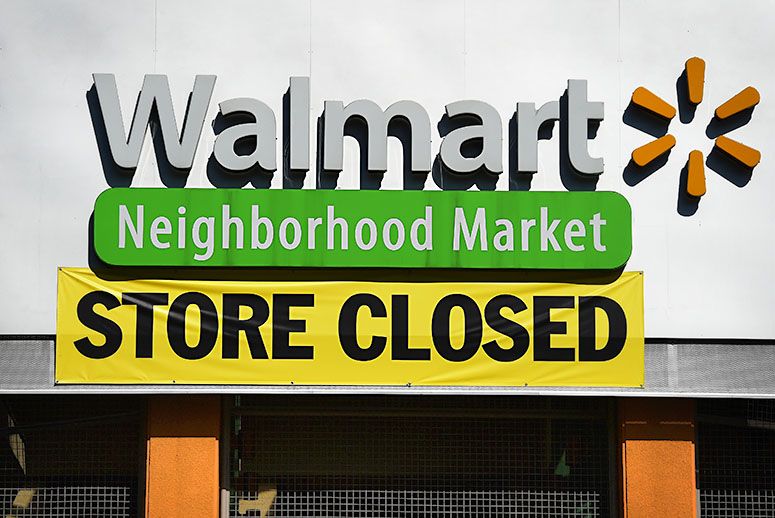


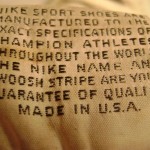
Leave a Reply
Want to join the discussion?Feel free to contribute!